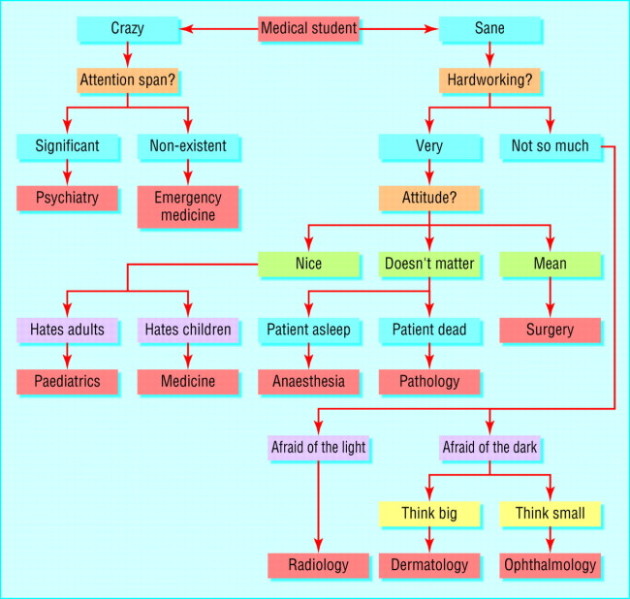Knowing Yourself: 3 Keys To Leveraging Ancient Wisdom
.
“Know Thyself”
The Oracle at Delphi said “Know thyself.” And that is deep and profound.
It’s also a pain in the ass because as with every cliche, the difficulty is in the execution and nobody ever bothers to tell you how to do it properly.
I guess they’re too busy brainstorming new fortune cookie wisdom while we sit around thinking they’re smart for coming up with it and we’re dumb for not being able to follow through.
Knowing yourself is the hardest thing in the world because nobody lies to you about you more than you do.
We need answers. Good answers. Ones we can achieve simply — without a PhD, a wrench or elective surgery.
What does “knowing yourself” really take?
What “Knowing Yourself” Means
It’s amazing to me how much real insight about life is coming from business books and business schools these days.
In Management Challenges for the 21st Century, Pete Drucker, probably the most influential thinker on the subject of management, says to be successful throughout your entire work life — one that will likely span numerous jobs, multiple industries and wholly different careers — it all comes down to knowing yourself.
And knowing yourself, in terms of achieving what you want in life, means knowing your strengths.
But the reason I like Drucker is because he doesn’t stop there or just bury you in self-help platitudes. He gives a definition:
What are you good at that consistently produces desired results?
It’s not necessarily what you enjoy or what a test says you have aptitude for, it’s the things you do that result in crossing the proverbial finish line.
These are your strengths. Other research I’ve posted shows they’re tightly tied to happiness and fulfilling work.
You need to know what your strengths are to make the right choices.
Ignore Weaknesses. Double Down On Strengths.
If you’re one of those people who is skeptical about change, or who find it really hard, Drucker is for you.
He doesn’t believe we can overhaul who we are, turning introverts into extroverts and thinkers into feelers.
He believes in doubling down on the areas where you’re strong, bringing up the areas that get in the way of executing your strengths, and utterly ignoring the places where you show little aptitude.
There’s no sense striving for mediocrity in multiple categories. Figure out what you’re naturally good at and go all in.
Via Management Challenges for the 21st Century:
…do not try to change yourself — it is unlikely to be successful. But work, and hard, to improve the way you perform. And try not to do work of any kind in a way you do not perform or perform poorly.
It’s only by having a clear vision of your strengths that you can make good decisions.
You know those people we’re all jealous of who can confidently pick something, say they are going to be awesome at it, and then calmly go and just be awesome at it?
This is their secret: They’re not good at everything but they know where their strengths lie and choose things that are a good fit.
Via Management Challenges for the 21st Century:
(This) enables people to say to an opportunity, to an offer, to an assignment: “Yes, I’ll do that. But this is the way I should be doing it. This is the way it should be structured. This is the way my relationships should be. These are the kind of results you should expect from me, and in this time frame, because this is who I am.”
How To Do It
Drucker calls it “Feedback Analysis” but I think that’s way too formal and intimidating a term.
From now on when you undertake projects, write down what you expect to happen, then later note the result.
Yes, as I’ve mentioned time and again, notebooks are powerful. They are a shield against poor memories, rationalization and outright lying to yourself.
Just as a great first step for networking is to trace back your relationships to the handful of “superconnectors” you know, looking at successful and unsuccessful projects will tell you what makes you achieve and fail.
Review the results and think about 3 things:
- What your strengths are.
- Under what conditions you perform well.
- What your values are.
Knowing Yourself Helps Everything
That vague Oracle was right. Knowing yourself benefits your whole life.
And while Drucker’s method is only focused on career, you’d be smart to extend it to romantic relationships, happiness, friendships, etc.
- Happiness — I’ve noted the things that make me happy over time. I’ll schedule time to do them more often.
- Relationships — My good dates/great relationship moments all had these things in common so I’ll make those things deliberate from now on.
- Friendships — All my close friends have these things in common. I’ll use that to know who to spend time with.
So what’s the next step? Get that notebook.
Then develop your strengths with Cal Newport’s expert advice.
Join 45K+ readers. Get a free weekly update via email here.
Related posts:
What 10 things should you do every day to improve your life?
What do people regret the most before they die?
What five things can make sure you never stop growing and learning?




